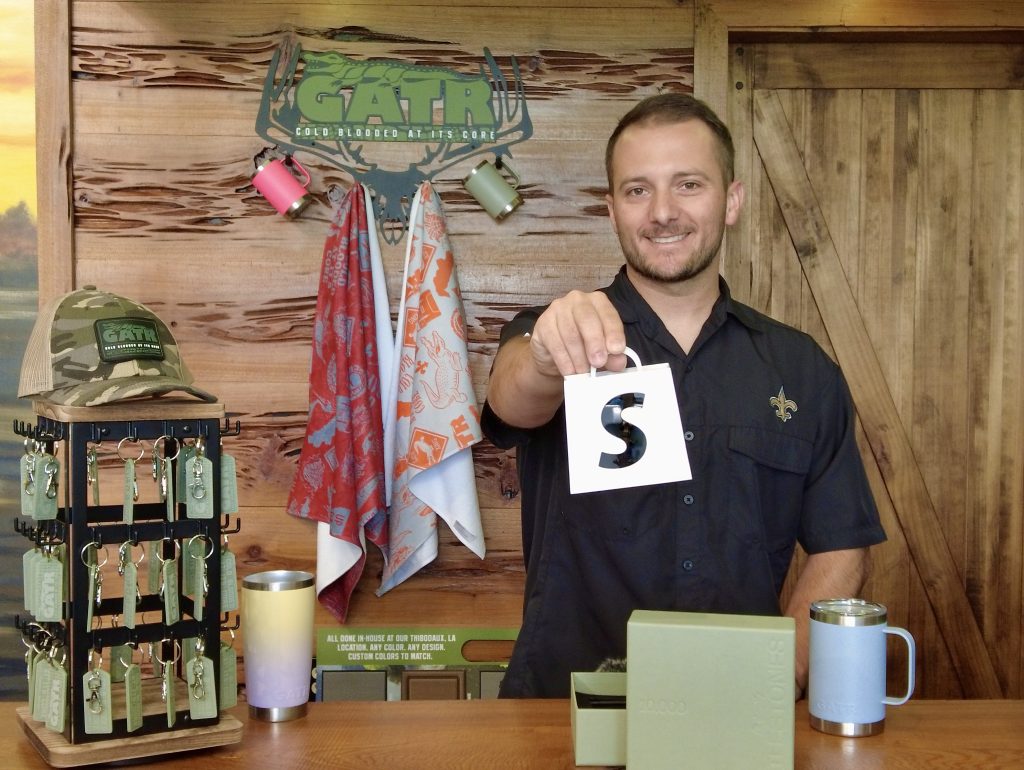CEO Bryan McGehee describes the launch of GATR Coolers as “a text-message joke with my brother that somehow worked out.” Based in Thibodaux, Louisiana, his custom-products company specializes in coolers and drinkware, but also provides branding on boats, RVs, golf carts, pool areas and other nonporous surfaces. Since its inception in 2017, GATR Coolers has been averaging annual revenue increases of 60%.
Despite his company’s growth, McGehee says learning how to run a business has not been easy. With that in mind, he has participated in several Edward Lowe Foundation programs, which are hosted in his state by Louisiana Economic Development. Below is a quick look at some of his takeaways:
PeerSpectives CEO roundtables — These monthly roundtables enable second-stage business leaders from different industries to discuss challenges they face in scaling their companies. McGehee participated in a virtual version of PeerSpectives where he gleaned a variety of lessons, especially about HR issues. What’s more, a fellow roundtable member opened the doors to other resources, including the Goldman Sachs 10,000 Small Businesses.
American Academy of Entrepreneurs — In this seven-month mentoring program, McGehee was paired with another second-stage entrepreneur, albeit one who was further along with the growth continuum. “It was almost like I was talking to my future self,” McGehee says, explaining that his mentor was able to foreshadow potential consequences if certain issues weren’t addressed. “My favorite part of the program was having someone I had to be accountable to,” McGehee says. “Not that my mentor could have fired me, but he put me on a schedule to follow through with some difficult things. It was fulfilling to be able to report back that I had checked them off my list.”
The System for Integrated Growth (SIG) — This virtual program enabled McGehee to work with subject-matter specialists on specific business challenges. For example, McGehee was looking to purchase an inventory management system, and a SIG expert on logistics provided research on a variety of options and then walked McGehee through the pros and cons of each.
As a result of the various programs, McGehee has been able to implement operating procedures and infuse more structure into his company. “Until a couple of years ago, we were completely winging it,” he admits. “We didn’t have an employee handbook, a time clock or even clear expectations of our employees. It was more like, ‘Here’s a list of things to do; okay, someone go do them.’ ”
And even though McGehee initially resisted the idea of introducing formal handbooks, processes and procedures because it seemed too much like Corporate America, the result has made a big difference in lowering costs and increasing operational efficiencies. What’s more, clearly defining everyone’s role has improved the atmosphere, he says: “We now have a much better understanding of who’s doing what instead of everyone looking at each other and thinking someone else is supposed to take care of it.”
McGehee also credits the programs for strengthening his leadership skills and helping him become more comfortable in dealing with both difficult employees and customers. “By my nature, I’m an outgoing person, and it’s hard for me to break ties,” he says. “Yet I realized I needed to be a leader, not a friend. When I started to really look at how much underperforming employees were costing me and the business, I understood it was difference between driving GATR Coolers in the ground or having a conversation and being uncomfortable for a day or two.”
“2024 is first year we’ve been profitable so early in the year,” he adds. “And it’s because of these programs. “Many business events are promoted as being educational, but nothing really comes out of them…they’re essentially about networking. This was the first business assistance that was really helpful to me.”
“Yet you have to put your effort into the programs,” McGehee adds. “I had to push myself to get out of my comfort zone, including talking about my feelings, which wasn’t easy. It’s important to really participate when you’re with the group. Read the books, do the homework, answer the questions. Don’t just go through the motions or look at it as a chore.”
(Published 7-29-2024)
